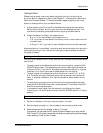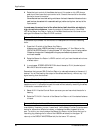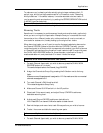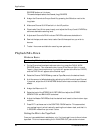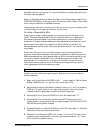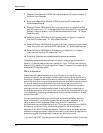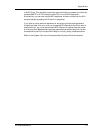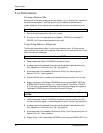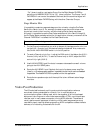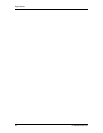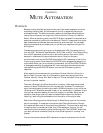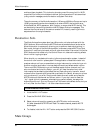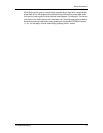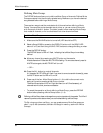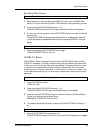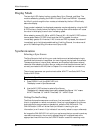
Applications
X2 Reference Manual 53
“On” (down) position, and assign Group 2 to the Right Master FADER by
switching the ASSIGN RIGHT to its “On” (down) position. The Group 1 and 2
FADERS will now control the selected Channels, and the combined signal will
appear at the Master FADERS along with the other Channels/Groups.
Stage Monitor Mix
It is possible to create two separate stage monitor mixes by using the Pre-Fader
Sends (Aux Sends 1 and 2). For example, the lead singer may wish to hear more
drums and vocals in their monitor, while the lead guitarist wants more bass.
Although it is possible to use the Post-Fader sends as well (Aux Send 3 though 8),
the Pre-Fader Sends are better suited for this application since any movement of the
Channel FADERS will not affect the Pre-Fader Send levels.
To create two different stage monitor mixes:
1 On the Channel modules that you wish to be part of the stage monitor mix, turn
up the AUX 1-2 control until the desired balance is obtained. Also, make sure
the CHAN/MON REVERSE switch is in the UP position.
2 To send a Channel only to Aux 1, adjust the PAN control (just below the AUX 1-
2 control) fully left (AUX 1). To send a Channel only to Aux 2, adjust the PAN
control fully right (AUX 2).
3 Use AUX MASTERS 1 and 2 knobs to increase or decrease the overall volume
going to the AUX SEND jacks.
4 Route the AUX SEND 1 and 2 jacks to the input of a stereo power amplifier.
Usually, a 1/3 octave graphic equalizer is patched into the line to notch out feedback
frequencies. The Alesis M-EQ 230 is a perfect unit for this application.
5 Route the two speaker outputs of the amplifier to two different sets of stage
monitors.
Video Post-Production
The X2 lends itself extremely well to post-production applications where a
soundtrack is being developed for video or film. In most situations, a
synchronization system is being used, which ties together all of the time-based
equipment including one or more video tape recorders (VTRs), a multitrack tape
recorder, and in many cases a computer running MIDI software. The software
usually performs as a sequencer for adding virtual tracks (sequenced parts not
recorded to tape), recalling effects programs on MIDI-compatible outboard effects
devices, or for recording mute events for the X2.



